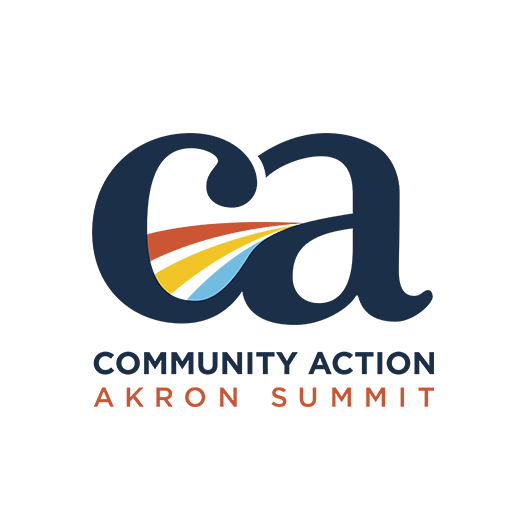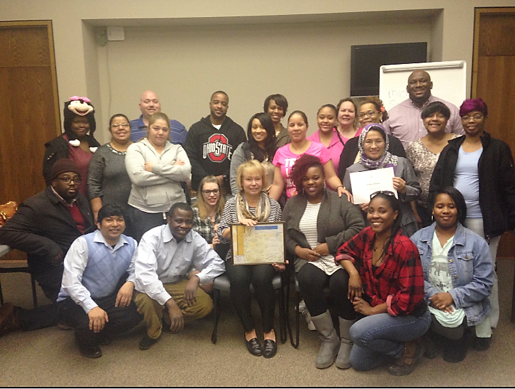Reducing Infant Mortality
Community Health Workers (CHWs) provide outreach, health education, care coordination, and advocate for individuals of different ages and categories such as pregnant women.
Key Responsibilities
- Find - Find and engage those at greatest risk. Comprehensively identify each of their risk factors.
- Treat - Each risk factor identified is assigned a specific Pathway. Pathways addressing health, behavioral health, and social service interventions are tracked simultaneously to ensure evidence-based and best practice interventions are received addressing each risk factor.
- Measure - As risk factors are addressed, the Pathways are completed and a reduction in risk is recorded.
CHWS Impact
The functions of CHWs are tailored to meet the unique needs of their communities depending on the organization or agency they work with. CHWs apply their unique understanding of the experiences, language, and culture of the communities they come from, and serve in order to provide one or more of these core services as identified by research
Role 1: Bridge the gap between communities and the health and social service system
- Enhance care quality by aiding communication between provider and patient to clarify cultural practices.
- Educate community members about how to use the health care and social service systems.
- Educate the health and social service systems about community needs and perspectives.
- Establish better communication processes.
Role 2: Navigate the health and human services system
- Increase access to primary care through culturally competent outreach and enrollment strategies.
- Make referrals and coordinate services.
- Teach people the knowledge and skills needed to obtain care.
- Facilitate continuity of care by providing follow-up.
- Enroll clients into programs such as health insurance and public assistance.
- Link clients to and inform them of available community resources.
Role 3: Advocate for individual and community needs
- Articulate and advocate needs of community and individuals to others.
- Be a spokesperson for clients when they are unable to speak for themselves.
- Involve participants in self and community advocacy.
- Map communities to help locate and support needed services.
Role 4: Provide direct service
- Promote wellness by providing culturally appropriate health information to clients and providers.
- Educate clients on disease prevention.
- Assist clients in self-management of chronic illnesses and medication adherence.
- Provide individual social and health care support.
- Organize and/or facilitate support groups.
- Refer and link to preventive services through health screenings and healthcare information.
- Conduct health related screenings.
Role 5: Build individual and community capacity
- Build individual capacity to achieve wellness.
- Build community capacity by addressing social determinants of health.
- Identify individual and community needs.
- Mentor other CHWs – capacity building.
- Seek professional development (continuing education).
To find out more about Community Health Workers go to Approved Community Health Worker Training Programs to see a list of training programs in Ohio.
The 21 Core Pathways
There are 21 Core Pathways that impact people’s health. Community Health Workers (CHWs) conducts a comprehensive risk assessment for each individual and each risk factor is translated into a Pathway.
Individual progress is monitored for each Pathway and are closed upon successful completion.
Social Determinants of Health
The Social Determinants of health are the conditions where we are born, work, live, and age. Our social and physical environment have the ability to affect our health, functioning, and quality of life
The five social determinants of health in the graphic below include: economic stability, education, social and community support, health and health care, and neighborhood environment.
National Certification
Pathways HUB Community Action is certified nationally through the Pathways Community HUB Institute. CA received Level I Certification in 2022.
HUBS in OHIO
Pathways HUB Community Action is one of 13 certified network of HUBs in Ohio. This Ohio network is the largest network of certified Pathways Community HUBs in the country. Here are the other HUBs in Ohio.
Cuyahoga County
Better Health Pathways HUB
Cleveland, Ohio
Franklin County
Health Impact Ohio
Columbus, Ohio
Lorain County
Lorain County Pathways HUB
Lorain, Ohio
Lucas County
Northwest Ohio Pathways HUB
Toledo, Ohio
Hamilton County
Health Care Access Network
Cincinnati, Ohio
Mahoning County
Mahoning Valley Pathways HUB
Youngstown, Ohio
Montgomery County
Dayton Regional Pathways HUB
Dayton, Ohio
Ohio Appalachian Counties
Corporation for Ohio Appalachian Development (COAD) HUB
Athens, Ohio
Richland County
Community Health Access Project
Mansfield, Ohio
Stark County
Stark County Community Action Pathways HUB
Canton, Ohio
Stark County THRIVE Pathways HUB
North Canton, Ohio
Portage, Summit, Media, Wayne Counties
Pathways HUB Community Action Akron Summit
Akron, Ohio
Tuscarawas County
Bridges to Wellness HUB
New Philadelphia, Ohio
HUB Funding Partners
Care Coordination Agencies
Pathways HUB Community Action has partner agencies in the community which employ Community Health Workers who provide community care coordination. The Care Coordination Agencies (CCAs) vary in the agency size, function and services that they provide. Each CCA is committed to addressing all 21 pathways among the populations that they serve.
The CCAs contracts with CA that allow CA to bill Medicaid Managed Care Organizations (MCOs) for services rendered by each CCA. Some of the payment points include completion of pathways, educational sessions, and checklist. The MCO contracts are a critical piece of the sustainability of the model in Summit County.

